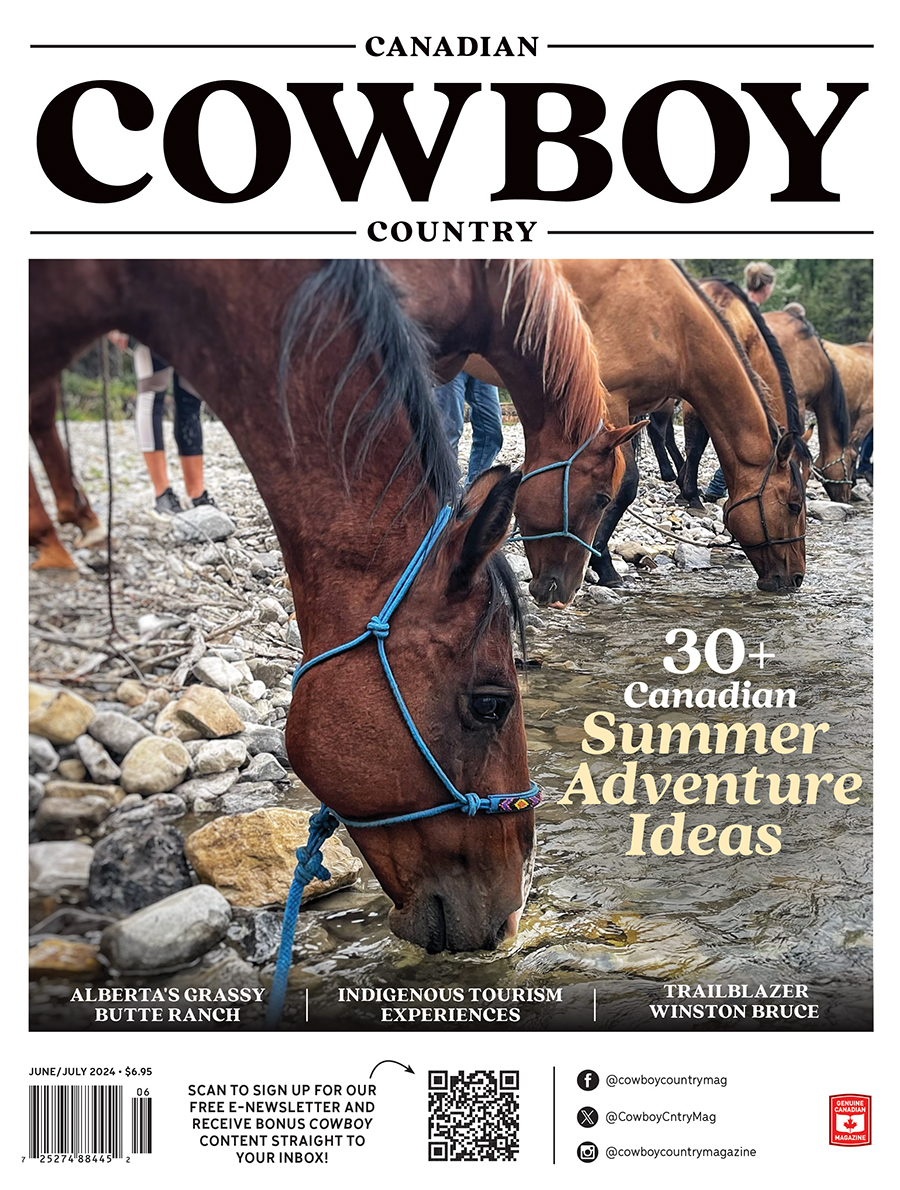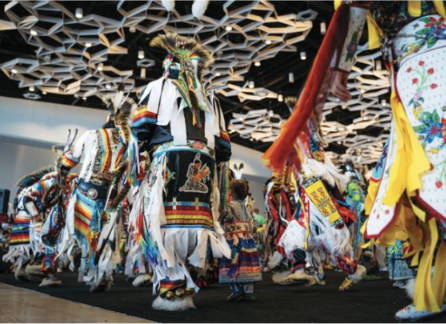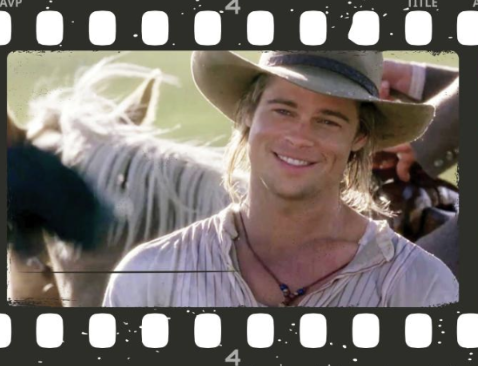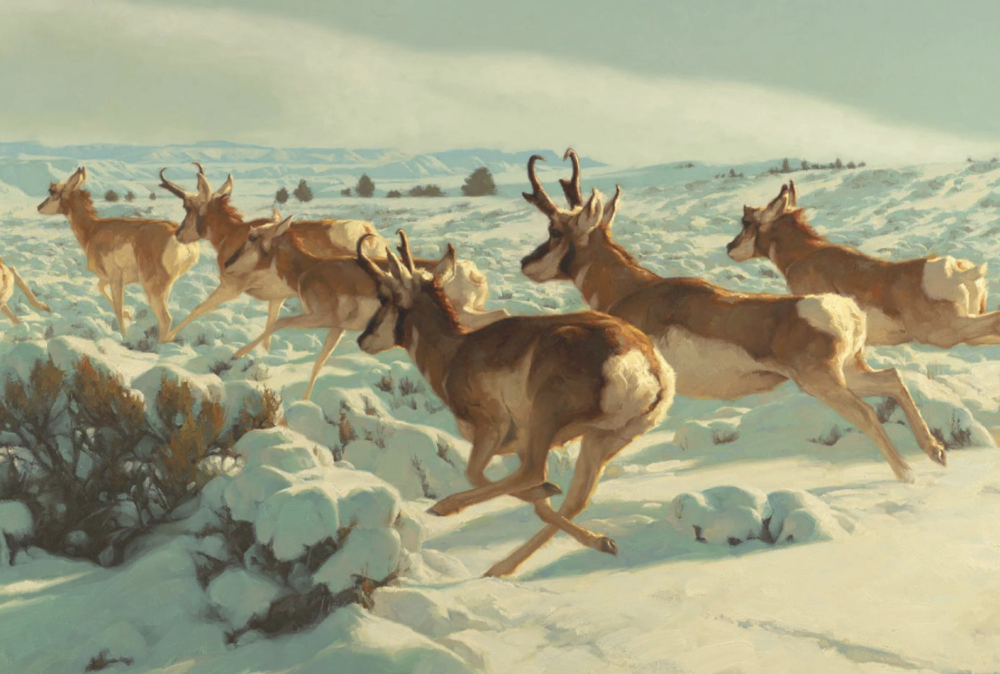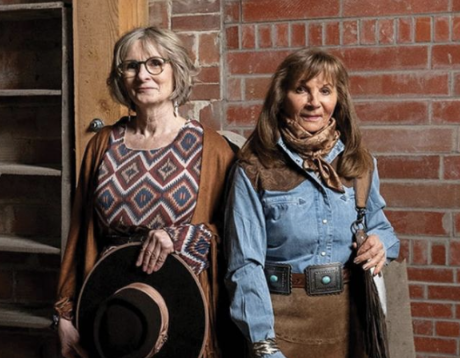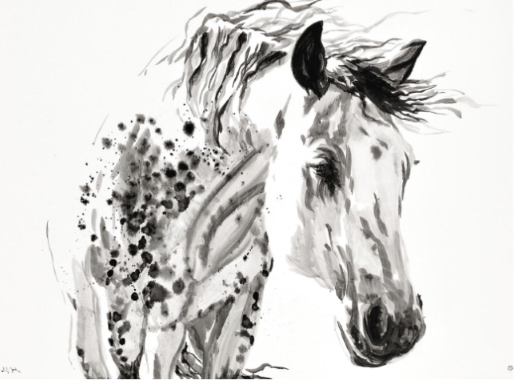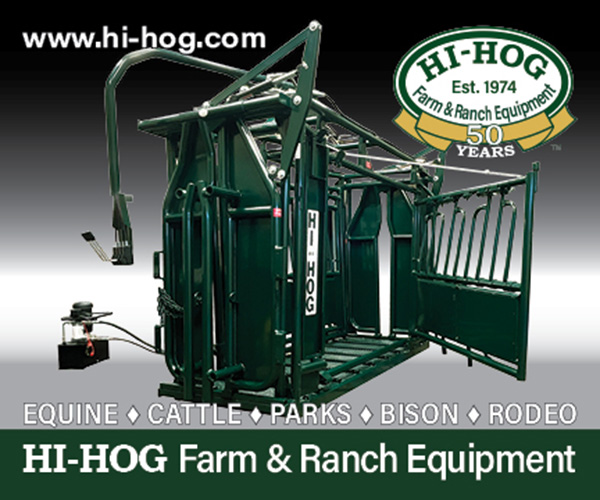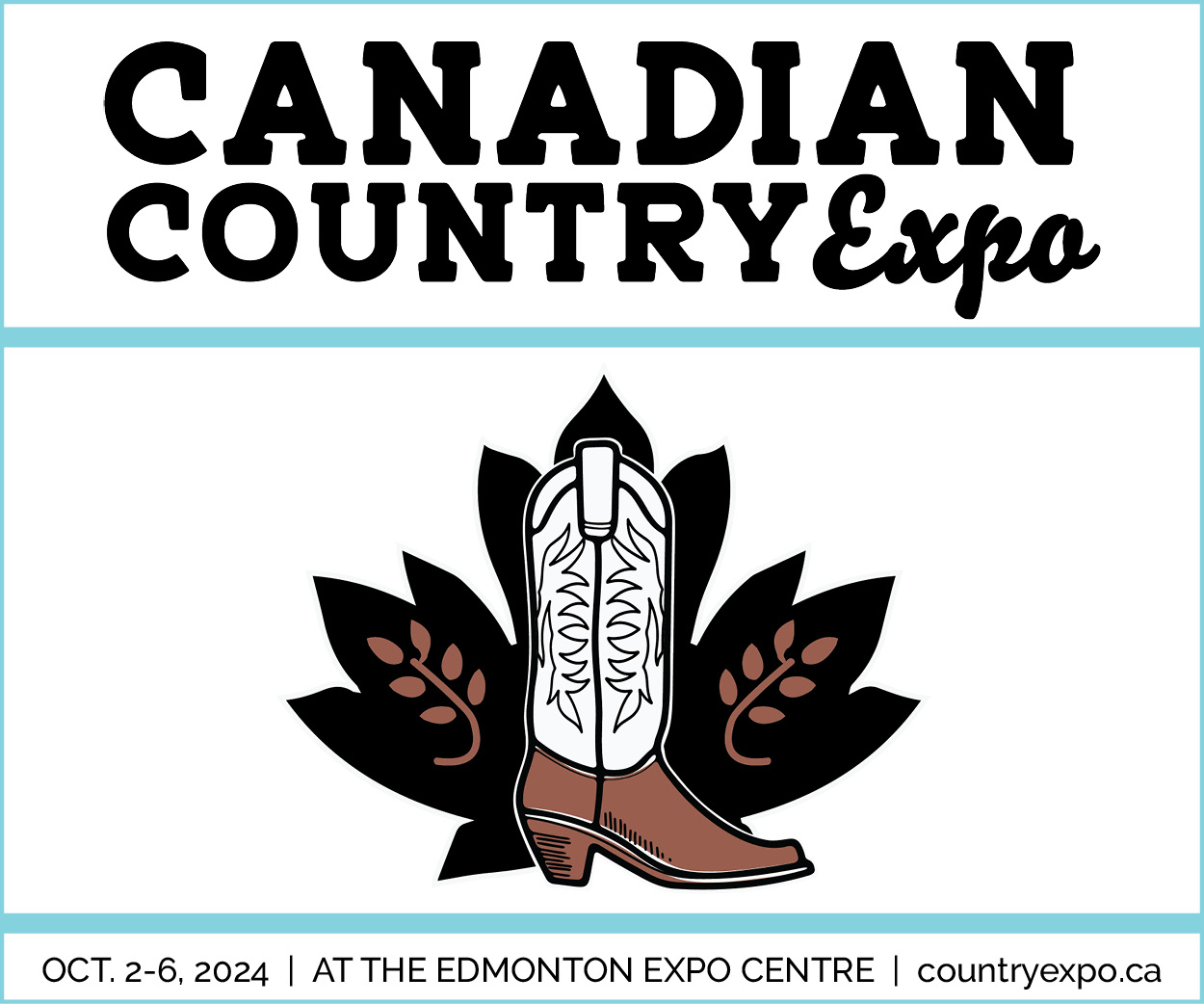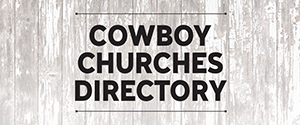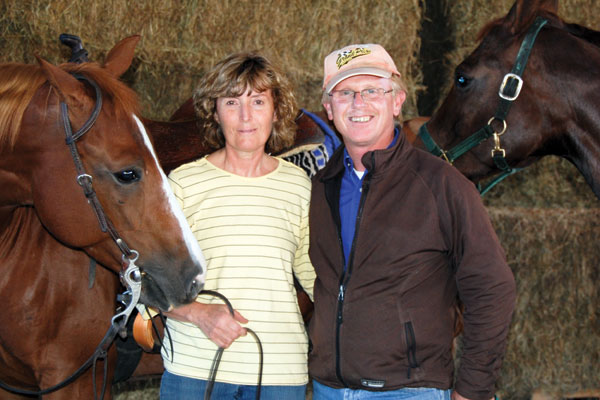
New Association, Old Sport
The sport of cutting horses may have originated in the Old West, but it has its cowboys, cowgirls and fans in Ontario and Quebec too.
Using cutting horses to separate, or cut, cattle from a larger herd is not only a skill still used on farms and ranches today, but as a sport it is increasingly popular. That’s why Brian Kelly, of Russell, Ontario started the Eastern Canadian Cutting Horse Association (ECCHA) a few years ago.
Kelly rode on the Canadian Cutting Horse Team and travelled North America from 1986 until 1993, which is when he moved back to his home near Russell. “I never thought I could get cutting going here,” he says with a laugh. “I had young kids and thought it was time I sucked it up and got a real job.”
He joined his brother in the sign business and participated in the community, including working with the local Agricultural Society’s fair board. In 2009 Steve Fisher, another Ontarian who promotes Western sports whenever he can, contacted Kelly to say there was a cancellation in the fair schedule, and could Brian do anything with cutting?
“The first thing I asked was how much budget they had,” says Kelly. “There wasn’t much.” His goal was to raise enough prize money from sponsors to be able to offer $1,000 in two classes. “A lot of skeptics said we wouldn’t get 20 entries. But I knew if I put the money up they’d come. So I called, begged and pleaded with everyone I knew.”
He called people he’d met on the cutting horse circuit from Quebec’s Eastern Townships, Michigan, New York, New Jersey, New Hampshire, and Southern and Eastern Ontario. “It was a big success,” he recalls with a grin. “The stands stayed full and the following year the Ag Society asked me for a full show.”
With cutting established as part of the fair, Kelly saw his opportunity. One and a half months later 35 cutting horse enthusiasts met in a local restaurant and started the ECCHA. “There were so many generous people,” he said. “A lady offered to build the website and became our first secretary. Other members stepped up to give a thousand or two thousand in sponsorship and awards.”
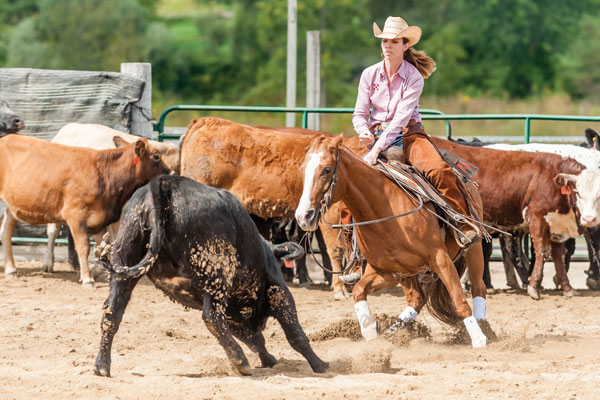
For such a young association the accomplishments are impressive. The group owns panels, timers, show clocks, trailers, rents regular practice and teaching facilities at Twin Pines Equestrian Centre near Russell, and is considering moving their annual show into an indoor arena in Quebec.
The association has over 60 members, including their announcer, sound man, equipment trailer owner, photographer and others with important skills. Kelly himself is also a certified National Cutting Horse Association judge. His first judging assignment turned out to be for the Canadian Finals, followed by judging 14 shows in two years.
Besides the other association members, he also has the support of his wife Laura Thomson, who helps out with the horses on her days off from her stressful job as an intensive care unit nurse.
Other board members are VPs Rex Decroix and Henry Pascone, secretary Claudette Jubinville, and directors Eric Bouchard, Michel Bourdeau, Gary Sorell, and Frank Duguay?—?who is also the owner of Twin Pines.
Competitors now come from as far away as Texas, California and Ohio. Kelly trains his own horses and rides and trains other owners’ stock as well.
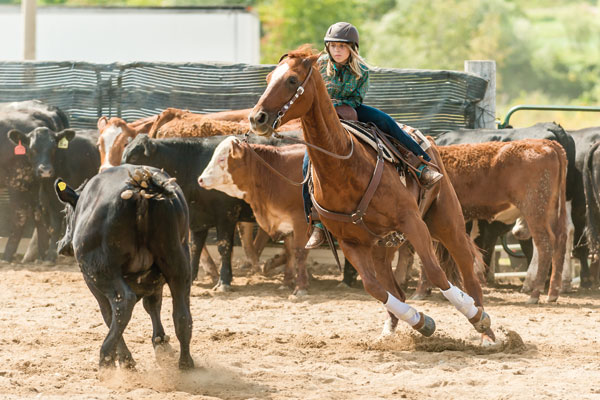
Most of the specialized cutting horses with good bloodlines are Quarter Horses. The most-wanted stallions, such as Highbrow Cat, have stud fees of over $20,000. Considering his offspring have won over $60 million, the price is not as exorbitant as it seems. “Cutting horses should be at least three years old,” says Kelly. “Younger horses aren’t ready physically or mentally.”
In Ontario, and neighbouring states and provinces, horses have recently become devalued, in a trickle-down effect from the provincial government’s decision to reduce support to the harness racing industry. That industry mostly concerns Standardbreds, but Kelly says, “In our area we have so many good equine professionals who work with the racing industry. The governments’ decision to reduce purse money affects them. Anything that affects my vet or the guy who sells hay, well that affects my costs, and it hurts the whole community.”
However, with the harness racing situation and the economic downturn Kelly thinks right now is a good time to buy a horse. “You can get a nice, trained horse for $10,000 to $15,000 which somebody else paid in money, blood and sweat.”
Currently the association operates its shows in Ontario and Quebec. With the rapid success it has enjoyed so far does the association have plans to include the Maritimes? Says Kelly, “If there’s an interest?—?oh, yeah. Sure!”


